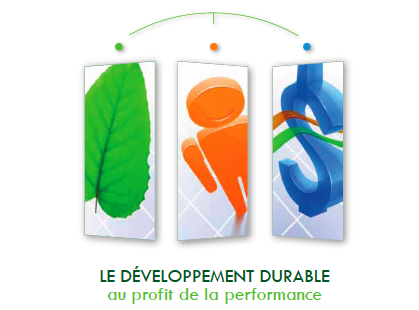Contract givers can support suppliers by collaborating with them to enhance their sustainable development practices and the performances of their products and services. Support may consist in exchanging information between the contract giver and the supplier on product- and service-related issues, holding meetings to determine the best ways to jointly overcome these issues, creating supplier guides, implementing programs to recognize supplier efforts, taking part in training sessions, developing partnerships to facilitate proof of concept or test bench processes and more.
For the past several years, the
European Union has communicated clear directions to its members: responsible procurement can effect the changes required to ensure the development of more environmentally sound products and production processes that are more likely to reduce the operating costs incurred by contract givers. A guide entitled
Public Procurement as a Driver of Innovation in SMEs and Public Services provides information for public purchasers seeking to support the innovation and research market.

In
France, the
Charte Relations fournisseurs responsables was created to ensure that best responsible procurement practices are rooted in reciprocity and based on effective collaboration between contract givers and suppliers. In early 2015, the purchasing volume of the signatory businesses totalled 450B Euros. Outlining ten commitments for responsible procurement, the charter aims to build sustainable, balanced relationships between corporations and their suppliers based on the knowledge and respect of each party’s respective rights and obligations. In 2012, expanding on these ten commitments, the
Relations fournisseur responsables label was introduced and awarded for the very first time to recognize the French companies that had developed sustainable, balanced relationships with their suppliers.
Within the ECPAR
In 2011, as part of its responsible procurement initiatives, Alcoa Canada Global Primary Products (GPP) innovated by supporting the suppliers that took part in the BNQ 21000 initiative. An initial pilot project co-funded by Alcoa that mobilized 12 suppliers was carried out in 2011 and 2012. The program was focused on sustainable development assessment and support for suppliers located in the vicinity of GPP in Québec. The approach was driven by the BNQ 21000 Développement durable - Prise en compte et application des principes dans la gestion des organisations et des entreprises guide. In addition to the positive outcomes of participation (constructive exchanges, motivation, support for commitments, market presence, employee pride), the project generated several benefits for suppliers:
- Increased awareness of environmental and social impacts
- Launch of a structured dialogue with stakeholders
- Framework, tools and knowledge to better target future actions
- Progress in terms overall performance
- Credible and transparent means to communicate commitments
- Alignment of the corporate responsibility approach and strategic planning
- Stronger business relationships with Alcoa
- Positioning to better respond to market requirements
- Preparations to meet certification requirements
- Recognition from peers and partners
In 2012, at the BNQ 21000 gala at the Musée national des beaux-arts de Québec to acknowledge program participants, Alcoa’s health, safety and environment director Claude Vincent presented a commemorative plaque to the participating suppliers in recognition of their valuable contributions to the pilot project.
In light of the success of the pilot project and the new challenges that the initiatives helped to elucidate, GPP encouraged five additional suppliers to take part in the pilot project entitled BNQ 21000 – Démarche allégée, which was launched in January 2013. The Boîte à outils BNQ 21000 toolbox was simplified and adapted to SMEs and is now available free of charge. The participating suppliers have begun to undertake actions that are adapted to their scales and sector in order to enhance their social, environmental and economic performances. The project, whose impacts have yet to be documented, is aimed at SMEs with up to 50 employees. The five participating businesses are:
- Groupe de la Côte in Baie-Comeau (safety clothing cleaning and repairs for the Baie-Comeau aluminum plant)
- Équipements Industriels BDL in Baie-Comeau (lift truck rental and maintenance)
- Nettoyeur Gariépy in Deschambault (safety clothing cleaning and repairs for the Bécancour and Deschambault plants)
- Vohl in Deschambault (metal parts manufacturing and sales)
- Techfab Gauthier in Montréal (copper inserts for cathode bars)
 The Ministère de l'Économie, de l’Innovation et des Exportations (MDEIE) plays a key role in providing sustainable development support to Québec businesses.
The Ministère de l'Économie, de l’Innovation et des Exportations (MDEIE) plays a key role in providing sustainable development support to Québec businesses.
 The Ministère de l'Économie, de l’Innovation et des Exportations (MDEIE) plays a key role in providing sustainable development support to Québec businesses.
The Ministère de l'Économie, de l’Innovation et des Exportations (MDEIE) plays a key role in providing sustainable development support to Québec businesses.